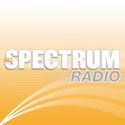
Speech recognition software works well for entering and retrieving text from computers, but doesn't work well for navigation. A new program called the Vocal Joystick will improve mouse navigation and interaction. Different vowel sounds move the mouse in different directions, speed is determined by the speaker's volume, and a "k" sound clicks the mouse. People learn and adjust in just a few minutes, and the training application is a fishing game.
Electroshock therapy works well on patients who don't respond to medication, but it has the potential to cause amnesia and it also has a negative perception by the public. A new technology called magnetic seizure therapy works on similar medication-resistant patients. The seizures caused by the electromagnets are focused and don't spread to the rest of the brain, so experimental patients have not had similar problems with amnesia.
Roger Frymeier decided to spend his retirement kayaking along the Charles and Mystic rivers in Massachusetts, but when he saw pollution in the rivers, he became a clean water activist. Since 2002, Roger has collected over 1500 samples from 97 miles of rivers, and also documents "objectionable floatables". He has more experience and knowledge about the rivers than the towns along them and he is considered indispensible by the municipalities that get his data. His thoroughness and persistence have earned him the nickname "The Mad Kayaker".
This program was originally broadcast on IEEE Spectrum Radio.
This free podcast is from our IEEE Spectrum Radio series.
For The Conversations Network: